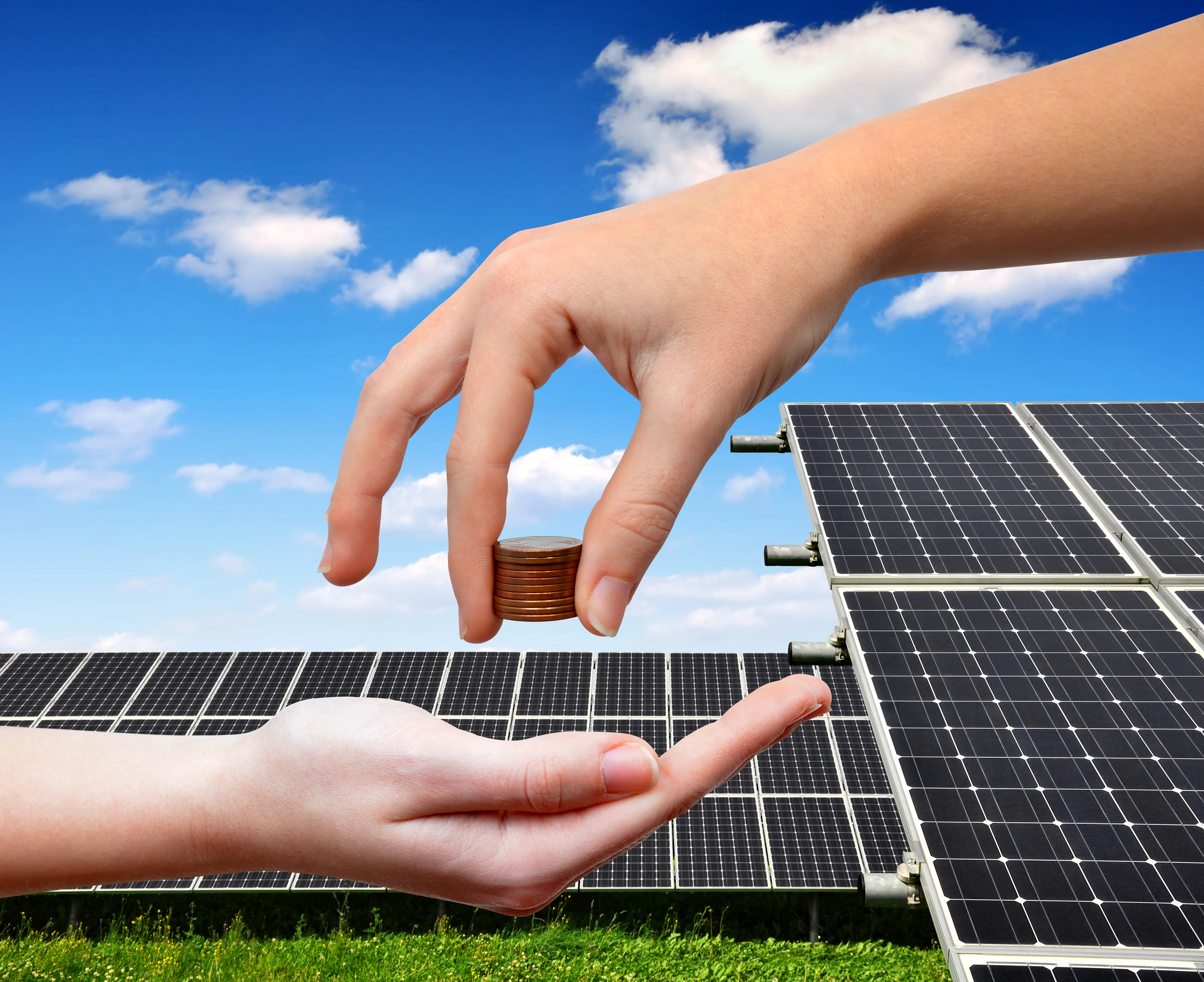Energy bills are rising, but solar panels can cut energy bills by up to 70% and save households up to £1,600 annually. While the upfront cost of solar panels can be a deterrent, government schemes exist. Start a search today to learn more.
A government scheme for free solar panels may be available. These initiatives are an incredible opportunity for homeowners to transition to renewable energy with minimal financial barriers, making it easier than ever!
Introduction to Solar Panels
Solar panels are devices that convert sunlight into electricity through a technology known as photovoltaics (PV). When sunlight interacts with a solar panel, it stimulates the electrons in the panel’s cells, generating an electrical current. This electricity can then power your home, decreasing your dependence on conventional energy sources.1
 Vaclav Volrab/Shutterstock
Vaclav Volrab/ShutterstockAdvantages of Solar Panels
The benefits of solar panels include financial savings, property value appreciation, and environmental preservation.2 Let’s take a closer look at the advantages:
- Save on your energy bills: One of the key advantages of solar panels is their potential to deliver significant energy bill savings by allowing you to generate your own electricity.
- Decrease your carbon footprint: A solar-powered home plays a crucial role in creating a sustainable future. It reduces dependence on fossil fuels and curbs greenhouse gas emissions.
- Boost your property value: Homes equipped with solar energy systems can fetch higher prices in the real estate market. So, the initial investment can yield profits when you sell the property.
- Achieve energy independence: Solar power eliminates your dependence on energy suppliers and their volatile prices. Your energy source is renewable and right above you.
Digging Deeper Into the Savings
In the UK, the average cost of a solar panel system ranges from £3,000 to £8,000.3 While it may seem like a significant upfront investment, this cost can be substantially reduced through various schemes. Remember, solar panels are an investment with returns.
For instance, solar panels can cut energy bills by up to 70% and save households up to £1,600 annually.4 Over time, as a result, solar panels can essentially pay for themselves through these savings. Moreover, solar panels can increase home values by up to 14%.5
Government Schemes for Affordable and Free Solar Panels
There are multiple solar panel grants and incentives available in the UK.6 For example, here are some of the schemes you should consider as you research online:
- ECO4 Program: This scheme provides financial assistance to eligible households for installing energy-efficient upgrades like solar panels, offering grants of up to £14,000.
- Home Upgrade Grant: Similar to the ECO4, this grant offers financial aid for energy-efficient home upgrades, allowing eligible households to receive up to £10,000.
- VAT Discount: Homeowners who install solar panels can enjoy 0% VAT on energy-efficient materials, significantly lowering costs.
- Smart Export Guarantee (SEG): Under this scheme, energy suppliers pay homeowners for the excess electricity generated by their solar panels.
- Regional Grants: Many councils offer regional grants, providing financial support for solar panel installations. Hence, it’s worthwhile checking the grants available in your area.
While there may not be a government scheme that’s explicitly for free solar panels, there are plenty of incentives and programs that can make solar panels an extremely affordable, and potentially cost-neutral, investment for homeowners in the UK.
Solar Panel Loans Are Another Option
If you don’t qualify for grants that significantly reduce the cost of solar panels, you may want to consider solar loans. For example, the Green Deal loan scheme enables homeowners to borrow funds for energy-efficient home improvements like solar panels.7 Homeowners then repay the loan with their energy bill savings.
Furthermore, many banks provide home improvement loans that homeowners can use for solar panels. However, loan terms can vary significantly. So, it’s crucial to compare different loans online. By doing this, you can find the best deal for your situation. Don’t underestimate the value of shopping around for loan options.
Frequently Asked Questions
While considering the possibility of installing solar panels, homeowners often have a few questions. Here are answers to some common questions you might find helpful:
What’s the lifespan of solar panels?
Solar panels typically last between 25 and 30 years.8 This doesn’t mean they cease to produce electricity after this period. Rather, their energy production gradually decreases.
Do solar panels work when it’s cloudy?
Yes, solar panels can still produce electricity under cloudy and overcast weather.9 While they might have lower output, solar panels don’t stop functioning altogether.
How much maintenance do solar panels require?
Solar panels need minimal maintenance.10 It’s wise to have them inspected and cleaned from time to time to ensure they perform optimally.
Final Thoughts
From their potential for significant cost savings to long-term environmental benefits, there are several reasons to consider installing solar panels. And fortunately, the initial cost can be less than you may think. Spend some time exploring government schemes for affordable and free solar panels. There are a multitude of avenues, from grants to various incentives, that can significantly reduce the cost of this valuable upgrade.